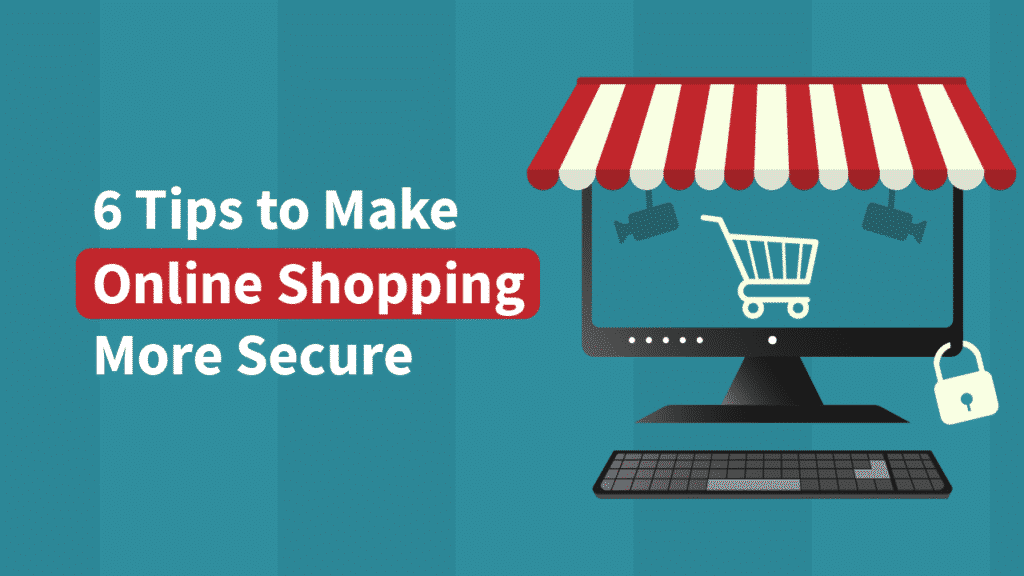6 Tips to Make Online Shopping More Secure
Online shopping is an attractive shopping option for a couple of reasons. Firstly, it is hugely convenient. You can search for, decide on, and pay for an item from the comfort of your living room couch. The item even eventually gets delivered to your doorstep. However, for all of these perks, online shopping comes with inherent risks. Some of these dangers are connected with online browsing generally, while others are specific to shopping online.
In this article, you will learn how to be safe while shopping online.
1. Shop Only from Familiar Sites
Online shopping is one endeavor where sticking to the familiar is an asset. Shopping with an unfamiliar brand can be very dangerous. Unlike physical locations, you may be unable to verify their identities. Additionally, you may not be able to get a refund if you run into any challenges. Make a habit of sticking with known brands. Always double-check the domain names to be sure you did not misspell anything. Cybercriminals sometimes create websites similar to popular ones, scamming people that way.
2. Look Out for the Secure Sockets Layer (SSL)
You may want to try out an unfamiliar online shop for any reason. For instance, they may be the only ones selling the particular item you want. Also, you could be interested in supporting a new start-up. However, before you do that, confirm that the site makes use of a Secure Sockets Layer (SSL) encryption. Websites with this level of encryption are easy to spot. They usually have HTTPS preceding their URL. Furthermore, you will notice an icon in the form of a locked key as part of the URL. If you make use of Chrome, your device would immediately flag any sites without that feature.
3. Get a Specific Credit Card and Email Address
You should also consider getting a temporary credit card specifically for online shopping. You can do this if you intend to shop within a limited time frame. Some credit card companies make these sorts of cards available. This, however, means you cannot use the card on sites that do auto-renewals or require regular payments.
Also, getting a specific email address for shopping might be ideal. This way, you will automatically route any promotions related to shopping to that email. Also, when you get a sales promotion email or any such email on your regular mailbox, you will then be wary.
4. Update Your Browser/Operating System
An outdated browser can cause you more than just lags while browsing. It could lead to the loss of personal data to cybercriminals and the likes. Always make sure that you update your browser and operating system before you shop online. You can manually update your browser app when it expires. Alternatively, you can change your settings so that the app gets automatically updated always.
5. Keep Track of Online Spending
You do not have to wait for the end of the month for your bank statement to be ready. Make sure you regularly go online to keep track of your online expenses. You can always access the electronic copies of bank statements tied to your debit or credit cards at any time. Whenever you notice an unfamiliar charge, take it up immediately. If you delay, you may run out of time, hence losing your money. Remember that most credit card companies give you 30 days within which you can report any issues.
6. Make Use of the Best Payment Options
A credit card is always preferable to a debit card while shopping online. This is because, if your debit card gets compromised, the hacker will easily then access your bank account. However, this does not happen with a credit card. Also, it is easier to get compensation for any loss from a credit card company than otherwise. The Fair Credit Billing Act limits a user’s liability to $50 in the event of fraudulent charges. Besides, some credit card companies offer fraud protection and security for their customers. You will be able to make use of these features if you make use of a credit card.
You may also want to consider third-party payment options. This route offers you another layer of protection. Instead of inputting your credit card details on every platform that you shop from, you could provide it only to this third party. You will be able to keep track of the places where your information is available. This, in turn, reduces the possibility of your data falling into the wrong hands. Some of the trustworthy third-party payment platforms you could consider include Apple Pay, Google Pay, Amazon Pay, PayPal, Payoneer, etc.
Conclusion
With more care and dedication, you can eliminate most threats associated with online shopping. You must not forget that these criminals keep updating their modus operandi. Hence, you need to keep learning to stay ahead of them. First, begin by taking these suggestions here to heart.

